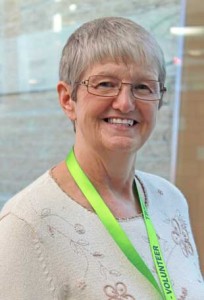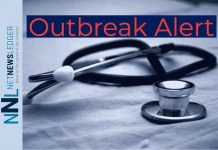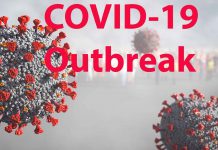

THUNDER BAY – “Having cancer changes your whole perspective,” says Kathy Forbes. She would know – in the past four years, Kathy has been diagnosed and treated for both breast and lung cancer.
Just before Easter in 2008, Kathy went for her routine breast exam on the Ontario Breast Screening Program Mobile Coach in Thunder Bay. Just four days later she was called for follow-up investigation at the Linda Buchan Centre where an ultrasound showed a suspicious mass. A biopsy confirmed that the lump was cancerous, and she had surgery at the end of May.
Kathy, who always considered herself to be an agreeable, perhaps even submissive person, found that having cancer made her stand up for herself. “Patients are afraid to ask questions or voice fears and suggestions because they are afraid that their care will be compromised if they push too hard,” says Kathy. “That’s not true. You have to take a role in your own care.”
After undergoing both chemotherapy and radiation therapy, Kathy was worn out. “The fatigue is hard to explain,” she says. “It’s bone deep.” But she wanted to lend her voice and experience to help smooth the cancer journey for other patients. Once she felt more like herself she began the process of becoming a Patient and Family Advisor (PFA) at Thunder Bay Regional Health Sciences Centre.
“Just when I felt I had recovered,” says Kathy, “I developed pain in my back that led to some testing, including a simple chest x-ray that showed something in my left lung.”
Less than two and a half years after her breast cancer diagnosis, Kathy was told she had Stage III squamous cell lung cancer that was considered inoperable. The good news is she didn’t have small cell lung cancer – the most aggressive form of lung cancer. “It’s funny how your scale of good news shifts when you’re living with a devastating condition,” Kathy laughs. “I honestly felt lucky that my diagnosis had at least a little room for hope.”
Kathy has never smoked or been exposed to second-hand smoke, and as far as she knows, she hasn’t been exposed to dangerous carcinogens. Recent news about the dangers of radon gas has spurred Kathy to test her house for the presence of radon – a naturally occurring gas that is known to cause lung cancer.
An intense treatment plan of chemo and radiation shrunk the tumour enough to permit thoracic surgeon Dr. Gehman to offer surgery. “Of course I accepted the offer,” says Kathy. “I’m trying to survive and that was my best option.”
Following lung surgery, Kathy had another round of chemotherapy. Her journey with cancer finally ended in July 2011. She is now a Patient and Family Advisor who helps initiate positive patient-centred changes and, though still in follow-up for both cancers, she has plenty of good advice to offer new patients.
She believes that “Anything that can ease the stress, anxiety, and fear for patients and families will give them more energy to concentrate on getting through their cancer. It is a long journey. Don’t give up hope.”
Kathy’s story is not unusual. A growing number of people – particularly women – who never smoked or even experienced second-hand smoke are developing lung cancer. Lung cancer is actually the leading cause of cancer deaths among women by a wide margin, killing more women in Canada each year than breast and ovarian cancers combined. Women should not ignore symptoms of back or chest pain, fatigue, shortness of breath, frequent chest infections, or unexplained weight loss.
KATHY’S ADVICE:
Screening really works – don’t put it off
Regular screening saved my life. I was due for my biennial mammogram when my cancer was found so it was caught at a stage where I had a good chance of surviving. Don’t think that it can’t happen to you – talk to your healthcare provider about getting screened for breast, cervical and colorectal cancer.
Bring someone with you to appointments
Cancer patients are not in the best frame of mind to be digesting a lot of new information. I encourage patients to bring a family member, caretaker, or friend to their appointments whenever possible. Having support and two pairs of ears is vital for verifying and clarifying what is said.
Never be afraid or feel intimidated to ask questions or have something explained
The Regional Cancer Care team is there for you. They want you to understand your situation and treatment plan and take an active role in your cancer diagnosis. Asking can reduce fear because answers can ease your mind, while fear of the unknown can be very upsetting. Knowledge can be powerful in helping you fight this disease.
Take advantage of programs like Look Good Feel Good
I went to Look Good Feel Good with my lung cancer. It is beautifully run and the products you leave with are incredible. I learned how to put on “eyebrows” and when you are bald and your own are gone this makes such a big difference. It is an ego booster and you learn a lot of feel good pointers like taking care of your skin and accessory options like scarves, wigs, hats, and more.
Don’t be shy to use services and supports from Regional Cancer Care and other agencies
I am lucky. When cancer hit me I was 56, my husband was retired, I had no children at home, and we were financially stable. It was still hard, but I didn’t have to deal with additional stresses that many other patients have to cope with. Regional Cancer Care can help patients get counseling, find support groups, investigate financial aid, learn about homecare, daycare, transportation, accommodations, and more.






